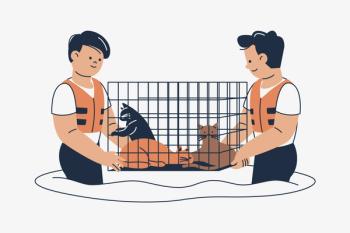
Letter to dvm360: An ethical practice helps those at the lower end of the income scale
Pets need care ... even those owned by folks with less money, according to this veterinary practice owner.
I agree with Dr. Michael Blackwell in
An ethical veterinary clinic will work with its active clients and charge amounts for sick-animal medical services that are appropriate for the animals and clients' ability to pay. At my practice, we help those who are at the lower end of the income scale as long as the patient has been seen within the last one to two years for a health preventative service. Clients receive reduced sick-animal exam fees and reduced emergency fees, and we provide them with the ability to pay later.
-Steven Benscheidt, DVM
Longmont, Colorado
Newsletter
From exam room tips to practice management insights, get trusted veterinary news delivered straight to your inbox—subscribe to dvm360.






